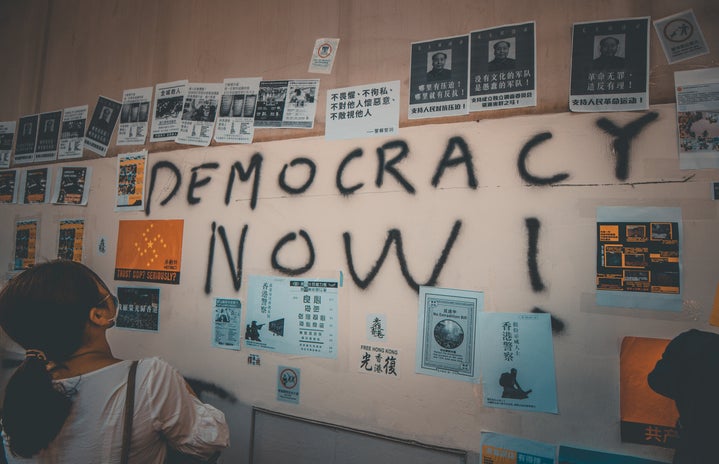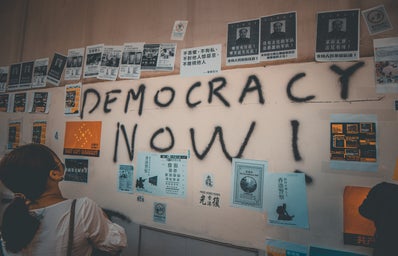The new Hong Kong British National (Overseas) Visa has now come into effect and is open for applications. The Home Office anticipates half a million people will try to immigrate to the UK on the new visa in the first three years; however, surveys have suggested the true number could be well over 600,000 [1]. Why are people in an international, metropolitan, formerly British colony so interested in moving away from home? The answer lies in the recent crackdown on democracy and free speech activism in Hong Kong by the Chinese Communist Party (CPP). While the media cycle of 2020 was dominated by the pandemic, racial justice and the US election, the people of Hong Kong were beginning to experience life under the new National Security Law, which came into effect in June. While protests caught the world’s attention (however briefly), this did not stop China from ‘bypassing the city’s own legislature, as a way to halt anti-government and pro-democracy protests that have been running for the last year’ [2]. The national security law is vague and broad, with penalties that extend to life in prison. The crimes of secession, subversion, collusion with foreign forces and more have essentially killed the right to free speech, expression and assembly in Hong Kong. Many have been arrested or sent into self-imposed exile to escape persecution from the authorities that say that have broken the new law. Nathan Law is the most high profile of these exiles. 27 years old and former leader of political party Demosistō, he is now living in London and has lodged an asylum claim. He calls the UK a ‘foreign yet somewhat familiar place’ with ‘shared cultural roots and signs that make me feel calm and blessed’ [3]. Indeed, for many Hong Kongers, London may soon be their home as well.
The UK government introduced the new visa in direct response to the national security law, which was considered a break of the 1984 Joint Declaration which transitioned Hong Kong back to the sovereign responsibility of China from Britain and established the one country, two systems policy [4]. This is just one facet of a relationship which is steadily deteriorating. Other issues, including the 5G controversy and treatment of the Uighurs have brought the UK-Sino relationship to a critical point. Even with such a visa arrangement, China has indicated it may not consider the visa a proper document of travel, potentially hindering the ability of Hong Kongers to leave.
The current state of democracy in Hong Kong is so poor that 96% of residents no longer consider Hong Kong the ‘safe and free home they are used to living in’. The situation does not appear to be improving. Leading pro-democracy campaigner, 24-year-old Joshua Wong, remains behind bars for organising a peaceful process in 2019. His family have now fled to Australia where a new visa arrangement was introduced too after the passing of the national security law [5] . With campaigners fleeing persecution or being held in prison, the future for democracy in Hong Kong seems bleak. However, as long as the young activists remain committed to campaigning for democracy, it is hard to believe that the CCP will manage to mobilise the same kind of energy and enthusiasm that the people of Hong Kong have been for years. As Joshua Wong said, ‘Hong Kongers are the means for change in Hong Kong’, ‘regardless of where “the battlefield” may be’ [6].
For more information on the campaign for democracy in Hong Kong, check out this episode of Pod Save the World, which features an interview with Nathan Law: https://crooked.com/podcast/the-world-biden-inherits/
Sources:
[1] https://www.theguardian.com/world/2020/dec/12/uk-government-underestimat…
[2] https://www.theguardian.com/world/2020/jun/30/controversial-hong-kong-na…
[3] https://www.theguardian.com/commentisfree/2020/dec/21/hong-kong-london-u…
[4] https://commonslibrary.parliament.uk/research-briefings/cbp-8616/
[5] https://www.theaustralian.com.au/world/family-of-hong-kong-activist-josh…
[6] https://www.bbc.co.uk/news/world-asia-china-54913367
This article was written on the 21st of January 2021.



